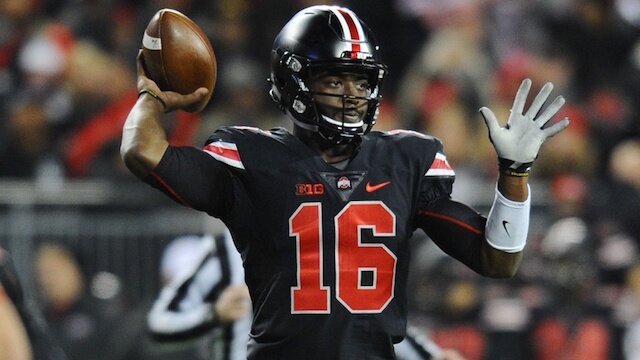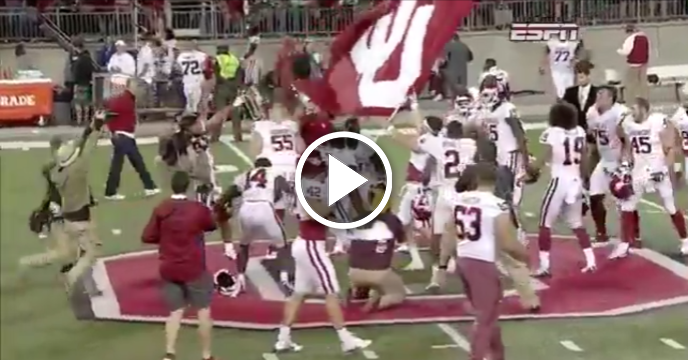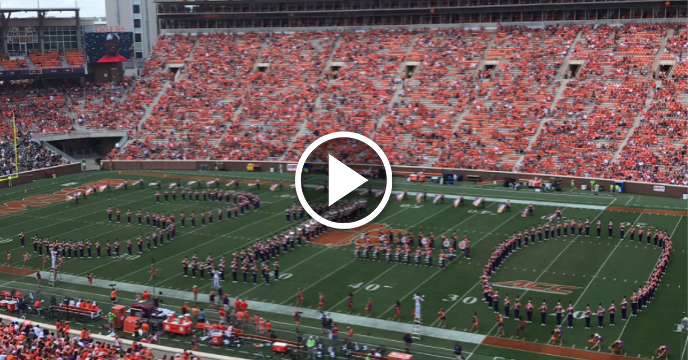
Every conference in college football has experienced at least one major scandal. The scandal involving the Ohio St. Buckeyes that ended up with Jim Tressel‘s firing as head coach would qualify as a major scandal for the Big Ten conference. The whole thing blew open a few weeks before the Buckeyes’ 2011 Sugar Bowl win over the Arkansas Razorbacks. And once it broke open, there was no stopping it.
Probably the biggest football-related reason this scandal hurt the Big Ten was because it happened to the Buckeyes, and they were the only consistent winner the conference had for the previous decade. Going through the conference during the Tressel years in Columbus and all that can be seen are previously successful teams going through a drought of varying degrees depending on the team or previously unsuccessful teams beginning to succeed. Throughout all of this, the Buckeyes were winning Big Ten championships year after year and playing in BCS bowl games or for the national championship.
This scandal, and the eventual penalties the Buckeyes ended up facing, also meant that the conference needed a new team to step up for a few years and become that big winner. Sadly, that winner never fully stepped forward.
The Wisconsin Badgers have appeared in three straight Rose Bowls, but didn’t win any of them. The Michigan Wolverines are inching back to their past prominence, but still have a way to go. And other potentially long-term successful teams like the Iowa Hawkeyes, Michigan St. Spartans, Northwestern Wildcats, and Nebraska Cornhuskers all saw those aspirations hit a snag in 2012.
In the two seasons since the scandal broke, the Big Ten has three straight Rose Bowl losses, the Buckeyes lost the only bowl game they played in, and the conference has gone 2-5 in other New Year’s Day bowl games that aren’t BCS bowls. The only bright spot for the conference on the field in the postseason since this scandal broke was the Wolverines’ win over the Virginia Tech Hokies in the 2012 Sugar Bowl.
When it was reported that Tressel told his people to lie to the NCAA, that also hurt the conference as a whole. A conference always needs at least one long-time coach that is winning to be a truly successful conference. Also, it helps the conference’s image when you have one of those coaches in the spotlight. Tressel was becoming one of those coaches that was a perennial winner without a blemish on his record off the field. This scandal provided that blemish.
Tressel leaving was the only way this scandal could have ended. If the NCAA went after Tressel with the full force of their powers, this whole thing would’ve ended up worse for Tressel and for the Buckeyes. I’m not denying that the NCAA has shown itself to be a money-hungry entity, but they are also an entity with a huge need to be seen as a stern disciplinarian. And this is where the scandal involving Tressel comes into play: if the NCAA wants a pound of flesh, they’re likely going to get it. And that goes double if you actually are guilty.
What this scandal took away from the Big Ten was its biggest winner in the BCS era. Fortunately for both the conference and the Buckeyes, that winner appears to be back to winning. This provides a rare bright sign for the Big Ten on the football field.
Phil Clark is a writer for Rant Sports. Follow him on Twitter or Facebook. Or check out his blog.
 Share
Share 











